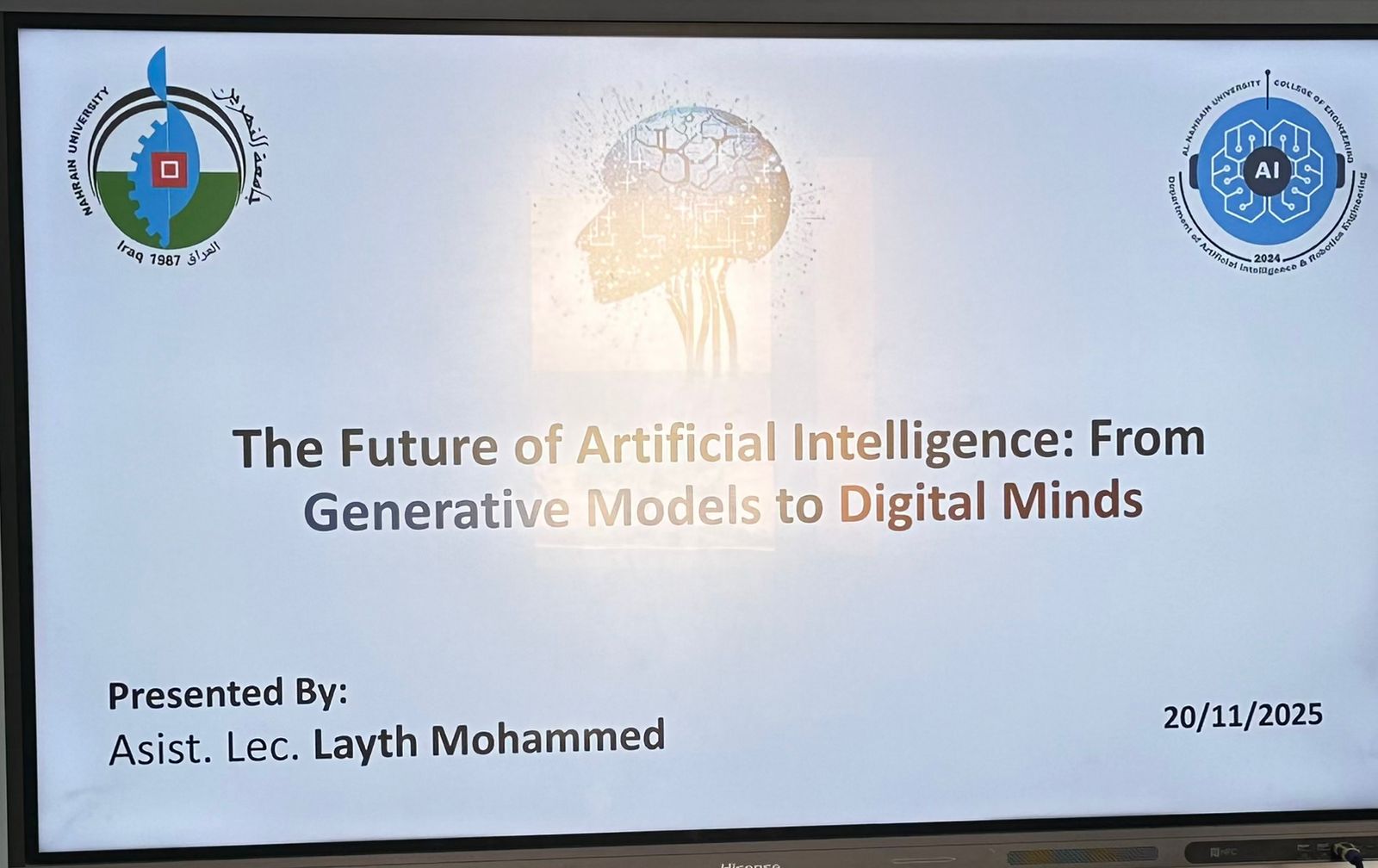Visitors: 32246568 Views
Done By: Artificial Intelligence and Robotics Department
Post Date: 2025-11-20
Last Browse: 2025-11-25

The Department of Artificial Intelligence
and Robotics Engineering at the College of Engineering – Al-Nahrain University
organized a scientific workshop on Thursday, November 20, 2025, titled: “The Future of Artificial Intelligence:
From Generative Models to Digital Minds” The workshop was presented by Asst.
Lecturer Layth Mohammed, with the attendance of several faculty members and
students of the department. The workshop reviewed the rapidly evolving
developments in the field of artificial intelligence, with a particular focus
on the transition from generative models to the concept of digital minds—intelligent
systems capable of perception, comprehension, and decision-making in a manner
that approaches human-like behavior. The presenter discussed the evolutionary
pathway of these technologies, beginning with expert systems, machine learning,
and deep learning, and moving toward cognitive AI. He also highlighted the
capabilities of recent advanced models such as GPT-5 and addressed the global
debate surrounding the feasibility of achieving Artificial General Intelligence
(AGI). The workshop further examined the
scientific challenges still facing AI systems, especially those related to
long-term memory, logical reasoning, and auditory and visual perception. These
limitations, the presenter noted, continue to be major obstacles to reaching
true general intelligence. The session also included analytical discussions and
visual charts demonstrating the gap between the capabilities of current models
and the direction of future research.
The workshop witnessed active engagement
from attendees, who discussed the potential applications of digital minds in
education, industry, and cybersecurity, as well as the role of universities in
guiding scientific research toward a deeper understanding of these advanced
technologies. In conclusion, the presenter emphasized that the world is moving
into a new era of cognitive AI, where artificial intelligence systems are
expected to become intellectual partners to humans in work, creativity, and
decision-making.